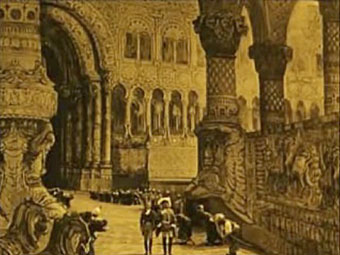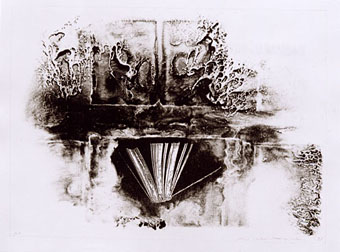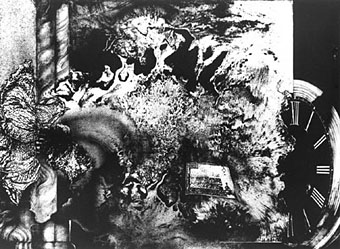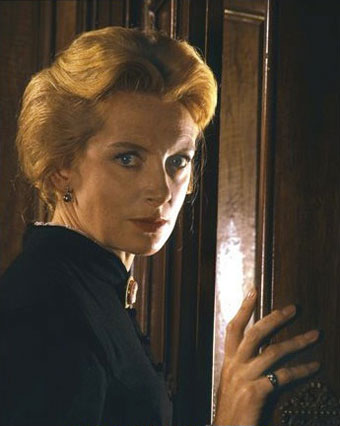
Inspiration (1949).
Karel Zemen (1910–1989) is a filmmaker I’m often telling people about but whose work isn’t easy to see, so it’s good to find that YouTube has gained some clips of his animations and examples of the partly-animated adventure films he made in the Fifties and Sixties. Zeman was yet another great Czech animator, and the YouTube collection includes his most celebrated short, Inspiration, which gives life to glass figurines, an unyielding medium that he moves as expressively as if it were clay or plasticine.

The Fabulous Baron Munchausen (1961).
The adventure films are predominantly based on Jules Verne and place live actors into animated settings, many of which are taken directly from (or intended to imitate) the engraved illustrations of the original novels. The animation enabled Zeman to fill his films with dirigibles, submarines and various steam contraptions which would be too expensive to create otherwise. Zeman’s The Fabulous Baron Munchausen took the Gustave Doré illustrations for its visual style which is something this particular Doré enthusiast appreciates, and the film is closer to the spirit of the Raspe novel than the Nazi adaptation of 1943 or Terry Gilliam’s later version. The results are a lot more artificial than the seamless blend of animation and live action attempted by Ray Harryhausen in his own Jules Verne film, Mysterious Island, but the artificiality gives the films a distinctive charm.
• A Deadly Invention aka The Fabulous World of Jules Verne (1958)
• The Fabulous World of Jules Verne trailer (1958)
• Excerpts from Baron Munchausen (1961)
• The Special Effects of Karel Zeman pt. I | pt. II
Previously on { feuilleton }
• Zeppelin vs. Pterodactyls
• Jan Svankmajer: The Complete Short Films
• Taxandria, or Raoul Servais meets Paul Delvaux
• Barta’s Golem
• The Hetzel editions of Jules Verne






